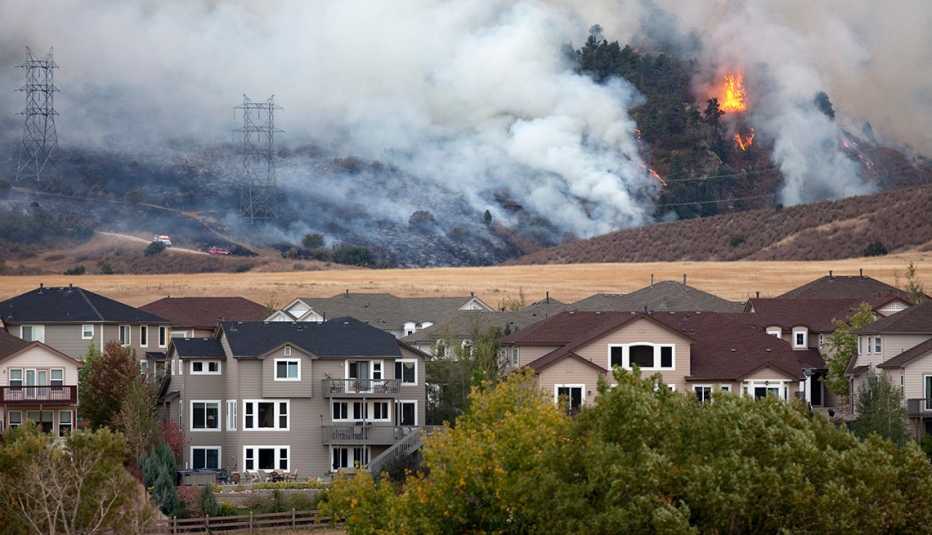AARP Hearing Center


Most people know that breathing in wildfire smoke can do a number on your airways, triggering everything from a coughing fit to a serious asthma attack. But inhaling the noxious air can be hazardous for your heart too.
A 2020 study published in the Journal of the American Heart Association found that breathing in heavy smoke from California wildfires increased the risk of out-of-hospital cardiac arrest (when the heart suddenly stops pumping) by up to 70 percent. Additional research has linked wildfire smoke to a significant increase in emergency room visits, particularly among older adults, for heart-related issues like irregular heart rhythm, heart failure, heart attacks and stroke.
“Most people think of breathing problems and respiratory health dangers from wildfire smoke, but it’s important to recognize the impact on cardiovascular health, as well,” Comilla Sasson, M.D., vice president for science and innovation for emergency cardiovascular care at the American Heart Association and an emergency medicine physician, said in a news release.
“Too often we leave that as a side story,” says Gaurab Basu, M.D., a health equity fellow at Harvard T.H. Chan School of Public Health’s Center for Climate, Health, and the Global Environment. “And it really is one of the things I think most about in terms of the impacts of air pollution.”
What is wildfire smoke?
Wildfire smoke is a mix of gases and fine particles from burning trees and plants, buildings and other material.
Source: CDC
Wildfire smoke is chock full of pollutants — just think of everything a fire engulfs — including tiny pieces of liquids and solids, called fine particle pollution, that can lodge themselves deep in the lungs and possibly the bloodstream. Once in the body, researchers say, these microscopic particles can prompt an inflammatory response that can affect the cardiovascular system, especially in people who already have cardiovascular disease.
“So, people who have any preexisting respiratory or heart-related conditions should take extra precautions because they are likely extra sensitive to the particles in the smoke,” says Katelyn O'Dell, an atmospheric scientist and a postdoctoral research scientist at George Washington University, who studies air pollution exposure and its health impacts.
According to the Environmental Protection Agency (EPA), people with chronic heart disease may experience the following symptoms after exposure to fine particle pollution:
- Heart palpitations
- Unusual fatigue
- Light-headedness
- Shortness of breath
- Chest tightness or pain in the chest, neck or shoulder
Approximately 127.9 million U.S. adults had some form of cardiovascular disease between 2017 and 2020, statistics from the American Heart Association show. Heart disease remains the leading cause of death for Americans.





































































More From AARP
Wildfire Smoke Poses Danger to Older Adults, Others
People over 65, those with lung and heart disease, face higher risk
How You Can Stay Safe This Summer
Follow these tips so you and your family can enjoy summertime activities
America’s War Against Heart Disease
Here's why we're losing the battle against our number 1 killer — and what will help